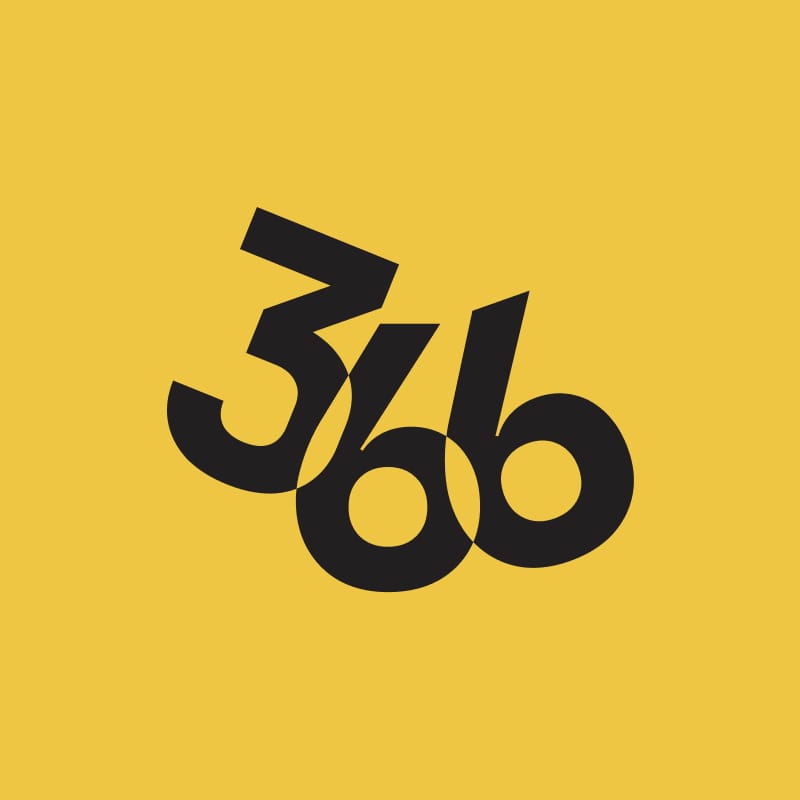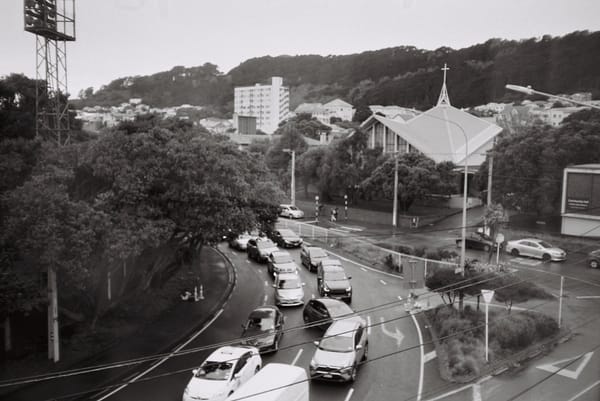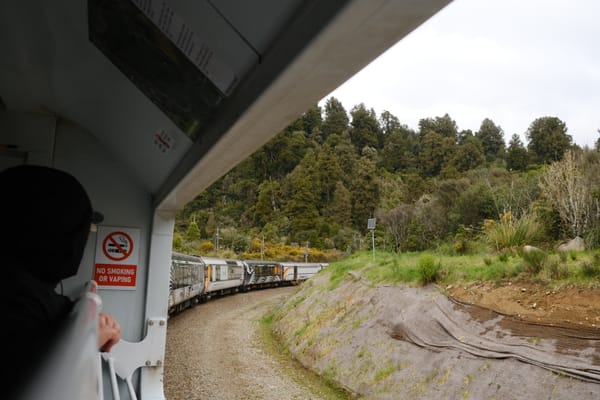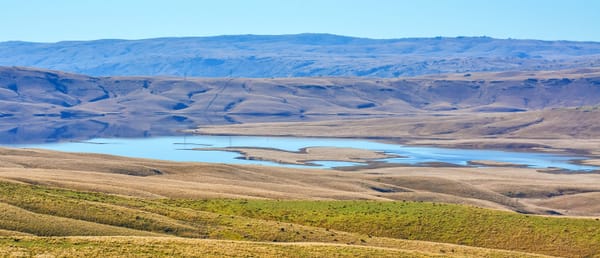Can Wellington be predator free?
Predator Free's work carries an inspiring lesson: dedicated communities can make impossible visions real.
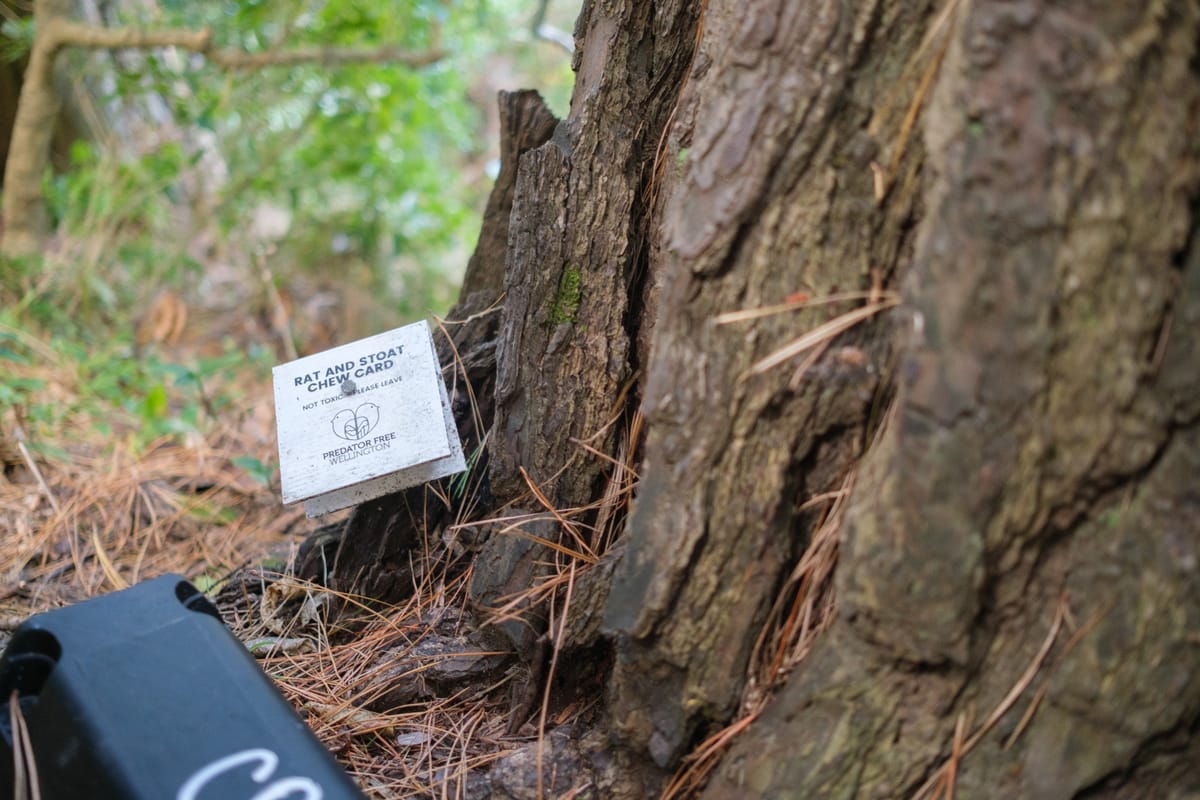
The other morning, I struggled through the bushy Town Belt. A field operator named Keaton was taking me to a nearby bait station.
He dressed for the occasion in proper bush gear. Meanwhile, I looked like a scared bee in a yellow t-shirt and tennis shoes.
Keaton works at Predator Free Wellington – group of passionate locals dedicated to making Wellington the first predator free capital. Their vision seems impossible… but they’re actually achieving it.
Conservation and climate change are different issues. Two things are true: killing rats and stoats will not prevent pollution entering the air, and killing rats and stoats is an important environmental cause. There’s an inspiring lesson for the climate fight in Predator Free’s work: dedicated communities can make impossible visions real.
The impossible vision
Wellington was a sad place to be a bird in the 1990s. Native manu had basically disappeared from urban spaces of Wellington City. Predators like rats, stoats, weasels, and cats were hunting birds. This made large parts of the city uninhabitable for rare birds like kākā.
Thankfully, a committed group of Wellingtonians wanted to do something about it. Organisations like Zealandia popped up with radical ideas on how to bring the birds back to the city. Locals put traps in their gardens through groups like Capital Kiwi. Predator Free Wellington set up shop to get rid of predators entirely.
My guide Keaton explained that their mission is to make Wellington a mainland equivalent of a DOC island like Kāpiti: completely free of wild predators. This goal is a world first for a capital city. It takes ambition.
The organisation’s approach to conservation feels modern. They use a complex combination of volunteers, data, new technology, and community support to go beyond traditional conservation. Instead of just protecting what’s left, they have a plan to bring back what we’ve lost.
They make areas predator free in phases. With local support, teams install bait stations on properties, then keep a “close eye” on an area to understand how many predators remain, Keaton explained.
After a month of close monitoring and no predators, “we go into a biosecurity phase.” Predator Free installs trail cameras (with mayonnaise as a lure!) alongside chew cards and bait stations to quickly identify when predators return.
Their process provides a detailed picture of the predator landscape.
“We’ve honed the edge of the sword in the approach we take. We can quite confidently predict how long a certain area is going to take.”
Predator Free Wellington has already made Miramar predator free. Now, they’re working hard on the rest of the central city. Places like Mount Victoria are already in the “biosecurity” phase.
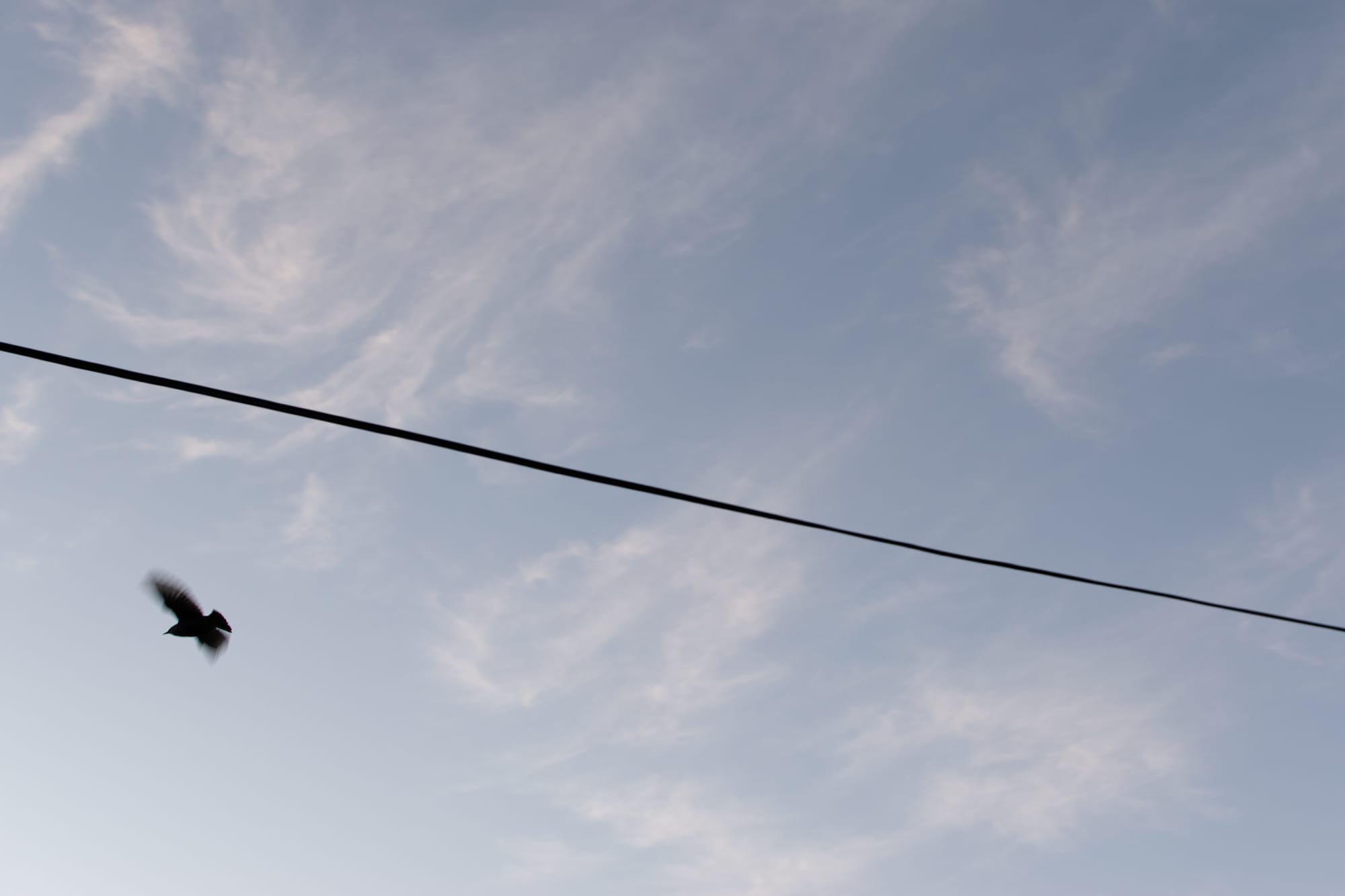
It’s a flocking success
The community commitment to eradicating predators is paying off. Miramar’s birdlife has shot up after their elimination of predators. Tūī sightings in their annual bird count are up 141%. As more of the city becomes predator free, the more our native wildlife will return.
The community is noticing the effect of Predator Free Wellington’s hard work. “Members of the public [tell me] ‘I’ve been living on this premises for 20 years: the bird life is far better.’”
Making our city bird-friendly can also make the city safer in a warming world. Planting native trees or restoring Wellington’s city streams are a great way to welcome birds to the city. Conveniently, it also protects us from heat waves and flash floods.
Meanwhile, climate change presents weird challenges for Predator Free Wellington as it does for everything in our society.
The University of Canterbury’s* Angus McIntosh and Cate Macinnis-Ng argue that hotter temperatures could mean weirder seeding seasons for native plants. Trees may drop unusually large amounts of seeds more frequently because of hotter temperatures, leading to more food for predator populations to eat.
There’s a lot we don’t know, and like the ocean, we can’t 100% predict which species will thrive in the warmer world that our leaders are welcoming.
Predator Free Wellington shows what community action can do
Wellington is blessed with people who give a shit. Locals are out there fighting for better public transport, ending poverty, or building more housing. These community minded Wellingtonians keep me hopeful.
Ambitious projects always attract naysayers who assume that a dream can’t become reality.
We have to remember that some believed a capital without predators was impossible. They were wrong.
People are making it happen: fighting for funding, developing monitoring technology, volunteering their time or their gardens to the cause. Because of them, I see tūī out my apartment window – something that would have been a miracle thirty years ago.
Dedicated citizens are working tirelessly to stop the world polluting. They’re why solar panels and batteries have made coal power obsolete. Communities are inventing e-bikes, petitioning for more apartments, and creating compost collectives. Across the world, humans are doing the hard work making modern life pollution free.
Because of them, the worst-case scenario for global warming has fallen from a “oh we’re fucked” 4 degrees of warming to just 2.7 degrees.
The more people work to make change, the easier it will be to stop the pollution. It’s especially true considering Predator Free depends on funding from the Regional Council. Community action makes it far easier for politicians to feel the pressure to provide money for these projects.
If it feels impossible to get good trains, apartments, community composting or cheap renewable energy, take a moment. Ask yourself what Wellington would be like if Predator Free gave up because their vision sounded impossible.
Wellington can be the low-pollution city we want. We can elect people who make it real, or take action ourselves. Predator Free Wellington is getting stuck in. Will you?
*Disclosure: I work at Massey University which competes with the University of Canterbury.
